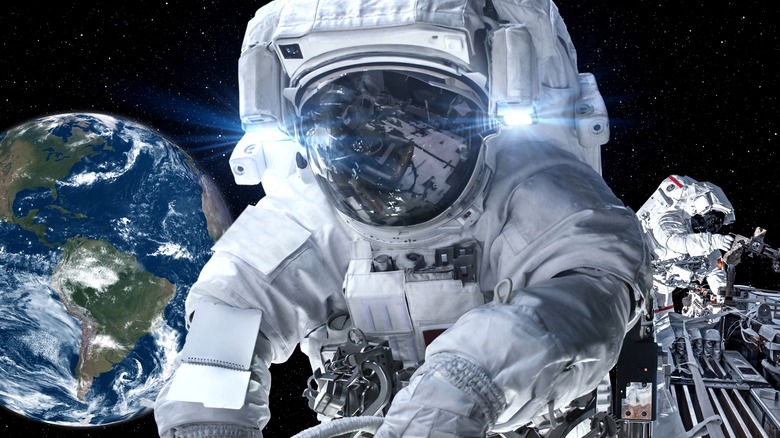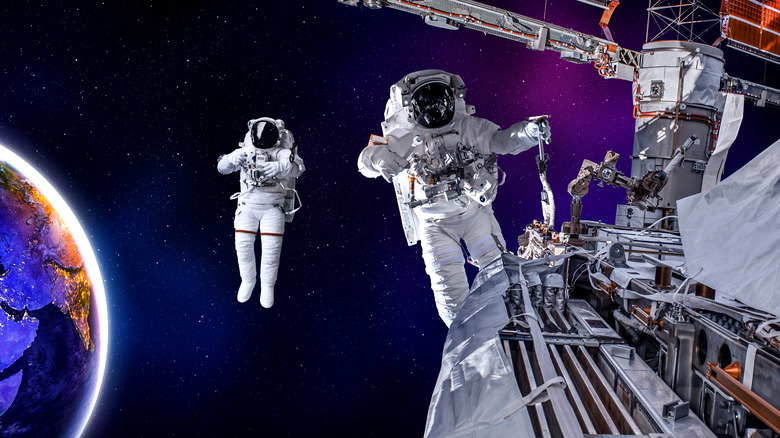What Happens To Your Blood Pressure In Space?
Spending time in space can have dramatic effects on your physical health. The human body has adapted to Earth's gravity, so spending lengthy periods in zero gravity in space can potentially have an impact on your bones, muscles and even the way your body processes food. And the changes don't stop there — it also has an impact on your heart.
Living without gravity changes the distribution of blood in your body, according to NASA. Blood and other fluids travel up from your legs and abdomen in space (per The Conversation), which can make your face and head swell up. NASA says the heart changes shape in space, shifting from an oval to a sphere. The muscles that control blood flow also struggle in space.
When you enter zero gravity, your blood pressure can drop. The shift is about the same as what happens when a patient takes medication to lower blood pressure, according to Science Daily. Studies have shown that's because the blood vessels are relaxed, and, according to Science Daily, that shift can actually be good for you.
How do astronauts stay healthy?
According to a study in the Journal of Physiology (posted at the U.S. National Library of Medicine), it's unclear if these changes to blood pressure would persist through lengthy periods of space flight. It's also not clear what specifically causes the relaxed blood vessels, the study said. "The discovery is important because during long duration missions, the blood volume burden to the heart could constitute a health problem during future long duration missions," said lead author Dr. Peter Norsk.
NASA is still conducting research to get answers to the full impact of space travel on the cardiovascular system. Those findings can be helpful to people who never leave Earth, NASA said, because the changes mimic those caused by aging and illness. But there are ways for astronauts to mitigate the effects of space flight on their bodies. Regular exercise and special clothing can help to maintain cardiovascular health and keep astronauts safe (via NASA).

